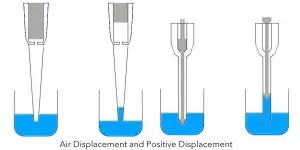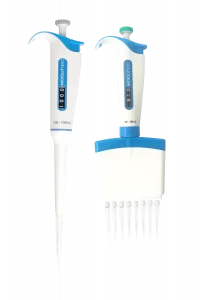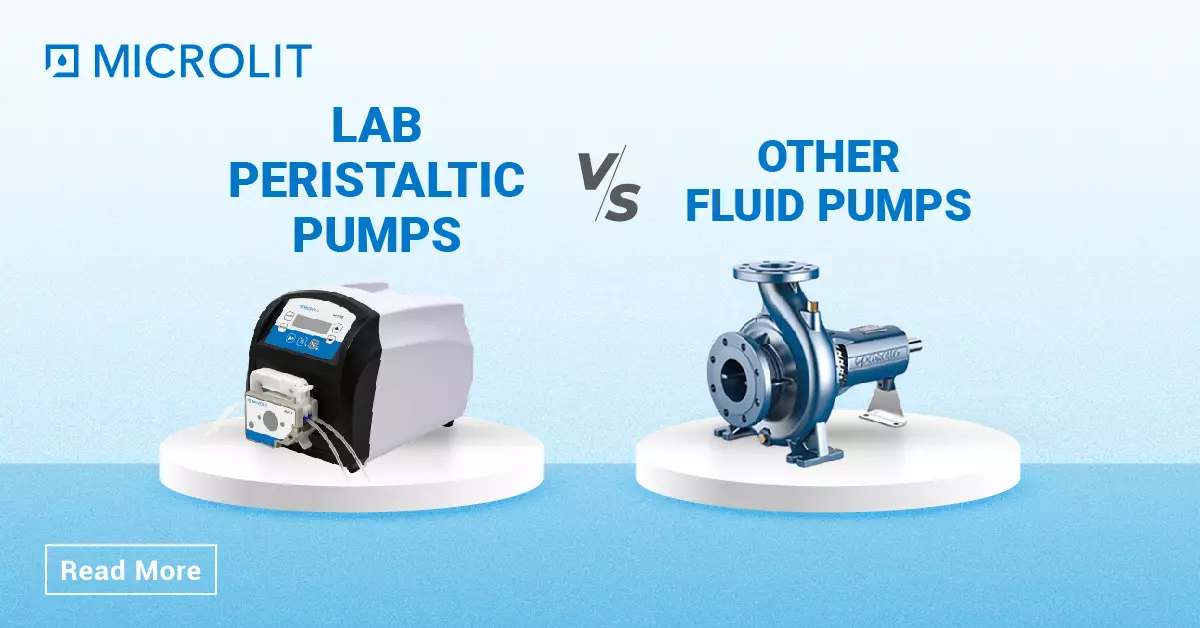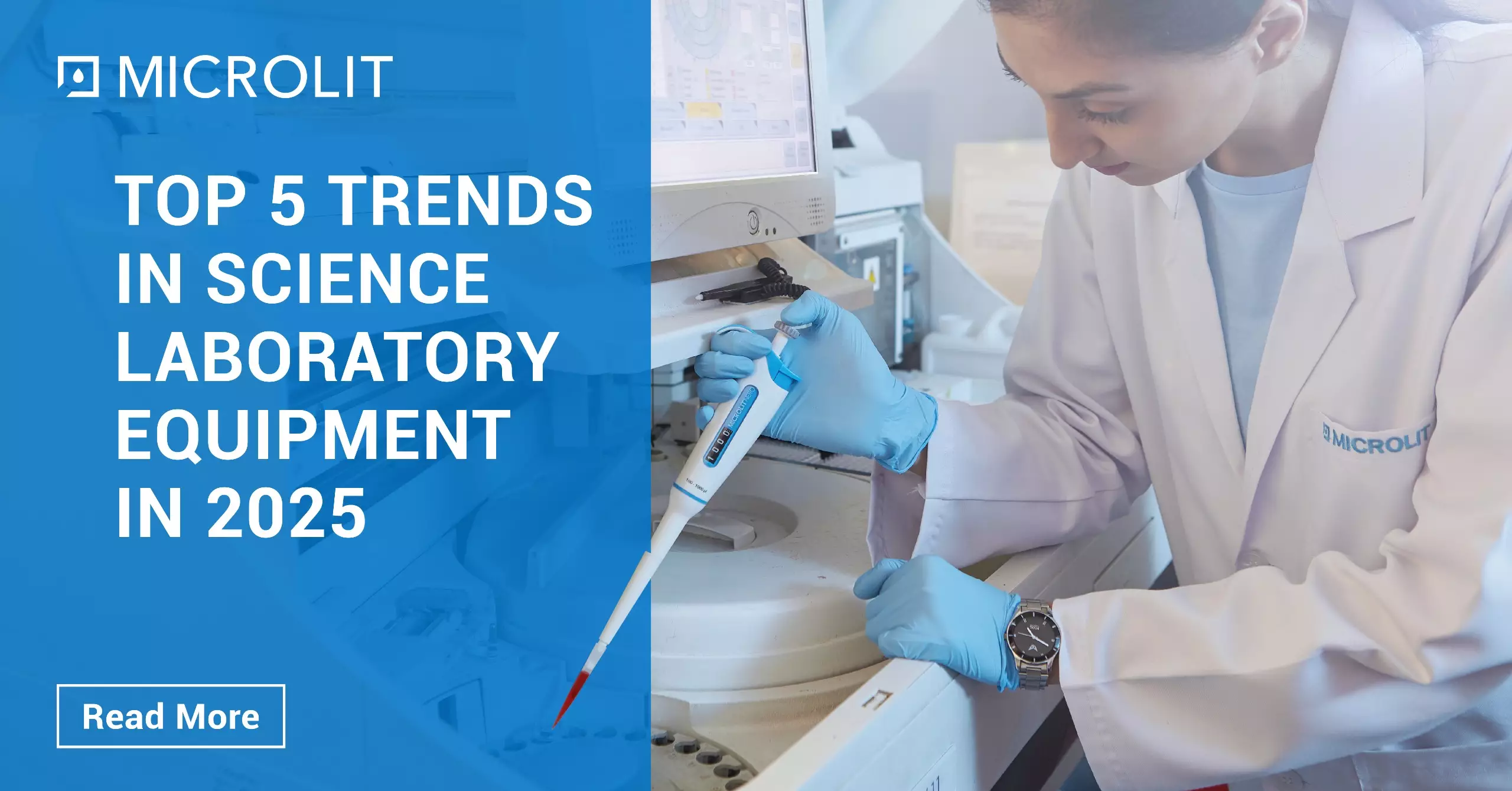The Undeniable Need for Precision: Why Mechanical Pipettes Matter in Laboratories?
- February 10, 2024
- ENQUIRE NOW

Introduction
 In the realm of laboratory science, precision is paramount. From molecular biology to clinical diagnostics, the accuracy of measurements can often make the difference between groundbreaking discoveries and inconclusive results. At the heart of this precision lies a humble yet indispensable tool: the Mechanical Pipette. Herein, we delve into the importance of mechanical pipettes in laboratories, exploring their role, benefits and significance in scientific research and experimentation.
In the realm of laboratory science, precision is paramount. From molecular biology to clinical diagnostics, the accuracy of measurements can often make the difference between groundbreaking discoveries and inconclusive results. At the heart of this precision lies a humble yet indispensable tool: the Mechanical Pipette. Herein, we delve into the importance of mechanical pipettes in laboratories, exploring their role, benefits and significance in scientific research and experimentation.
Understanding Mechanical Pipettes
Mechanical pipettes are handheld devices used to accurately measure and transfer small volumes of liquids in laboratory settings. They consist of a piston mechanism that allows users to aspirate and dispense precise volumes of liquid with ease. Available in various sizes and configurations, mechanical pipettes are versatile instruments used across a wide range of scientific disciplines, including molecular biology, biochemistry, microbiology and clinical diagnostics.
Air or Positive Displacement Pipette?
There are two types of mechanical, piston-operated pipettes: air displacement and positive displacement pipettes.
 Air Displacement Micropipette
Air Displacement Micropipette
Air displacement pipettes, which are intended for general laboratory work and aqueous samples, have an air column between the piston and the liquid. It consists of a piston which aspirates and dispenses liquid samples as the air pocket moves up and down, respectively. The internal mechanism of the pipette does not come in direct contact with the sample/liquid. Instead, a disposable pipette tip is used to draw the liquid into and dispense from the pipette. Most pipetting work in laboratories is performed using this type of pipette.
Positive Displacement Micropipette
Positive displacement pipettes are intended for demanding samples such as highly viscous, volatile, radioactive or corrosive liquids. In this type of pipette, the piston is in direct contact with the liquid, ensuring there is no risk of contamination. Because these pipettes require special tips, positive displacement pipetting is more costly than air displacement pipetting. The disposable tip in a positive displacement micropipette is a micro syringe composed of a capillary and a piston (movable inner part) which directly displaces the liquid.
How do they work?
A plunger or piston is used to draw or dispense the liquid. The user presses the plunger button (often located on the top of the pipette) to a first-stop position. This action lowers the piston creating a vacuum. The vacuum causes the liquid to be drawn into the pipette tip.
To dispense the liquid, the user presses the plunger button to a second stop position. This pushes the piston back up in the pipette barrel, expelling the liquid. Pipettes need to be maintained and cleaned to prevent contamination and ensure proper functioning.
Types of Mechanical Pipettes
Fixed Volume Single Channel Mechanical Pipettes
- Fixed volume single channel mechanical pipettes are designed to deliver a specific volume of liquid with each aspiration and dispensing cycle.
- These pipettes are ideal for applications requiring consistent and reproducible volumes, such as routine sample preparation and assays.
- They offer simplicity and ease of use, making them suitable for laboratories with high sample throughput. The Microlit RBO Single Channel Fixed Volume Micropipettes is one of this type.
Adjustable Volume Single Channel Mechanical Pipettes
- Adjustable volume single channel mechanical pipettes allow users to set and adjust the volume of liquid to be aspirated and dispensed.
- These pipettes offer versatility, enabling users to perform a wide range of applications with varying volume requirements.
- They are commonly used in molecular biology, biochemistry, and clinical laboratories for tasks such as PCR setup, DNA/RNA quantification and protein assays. Example: Microlit Nero® Single Channel Variable Volume

Multichannel Mechanical Pipettes
- Multichannel mechanical pipettes feature multiple channels or tips, allowing simultaneous aspiration and dispensing of multiple samples.
- These pipettes increase throughput and efficiency, particularly in high-throughput screening, ELISA assays, and sample replication tasks.
- They are available in various configurations, including 8-channel, 12-channel and 16-channel designs, catering to different laboratory needs. Example: Microlit Nero® Multichannel Micropipettes (8-Channel and 12-Channel)
Importance of Mechanical Pipettes
Accuracy and Precision
One of the primary reasons for the importance of mechanical pipettes is their ability to deliver accurate and precise volumes of liquid. This is essential for conducting experiments with reproducible results and ensuring the reliability of data.
Versatility
Mechanical pipettes are designed to accommodate a wide range of sample volumes, from microliters to millilitres. This versatility makes them suitable for various applications, including PCR, ELISA, cell culture and protein assays.
Ease of Use
Mechanical pipettes are user-friendly instruments that require minimal training to operate. With ergonomic designs and intuitive controls, they enable researchers to perform pipetting tasks efficiently and comfortably, reducing the risk of user fatigue and errors.
Reproducibility
Consistency is key in scientific research, and mechanical pipettes play a crucial role in achieving reproducible results. By ensuring consistent volume delivery, mechanical pipettes contribute to the reliability and validity of experimental outcomes.
Sample Integrity
Mechanical pipettes are designed to minimize sample loss and contamination, preserving the integrity of precious samples. This is particularly important when working with valuable or limited-volume samples, such as DNA, RNA or protein samples.
Cost-effectiveness
Compared to automated liquid handling systems, mechanical pipettes offer a cost-effective solution for routine pipetting tasks. They require minimal maintenance and are accessible to laboratories with varying budgets.
In conclusion, mechanical pipettes are indispensable tools in laboratory science, playing a critical role in ensuring the accuracy, reliability, and reproducibility of experimental results. From basic research to clinical diagnostics, these versatile instruments empower scientists to conduct experiments with confidence and precision, driving scientific progress and innovation. Know more about Microlit range of Mechanical Pipettes.





